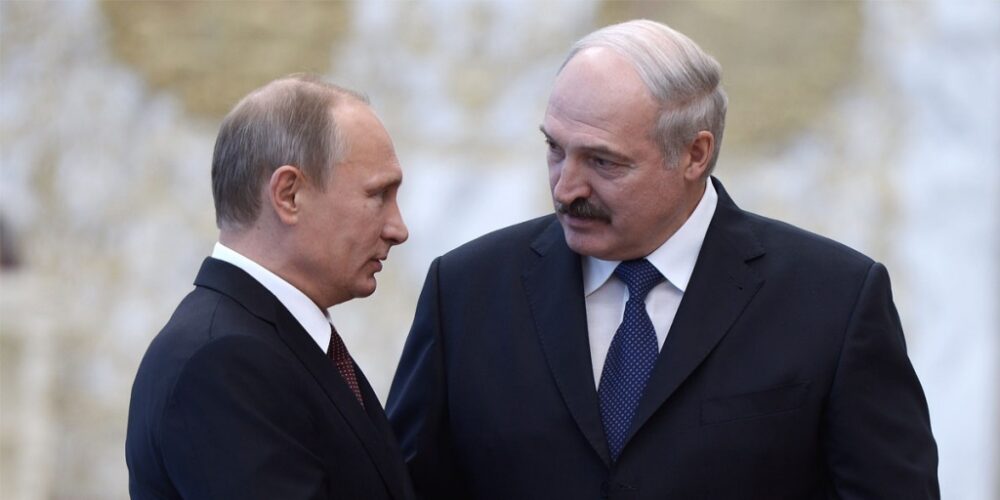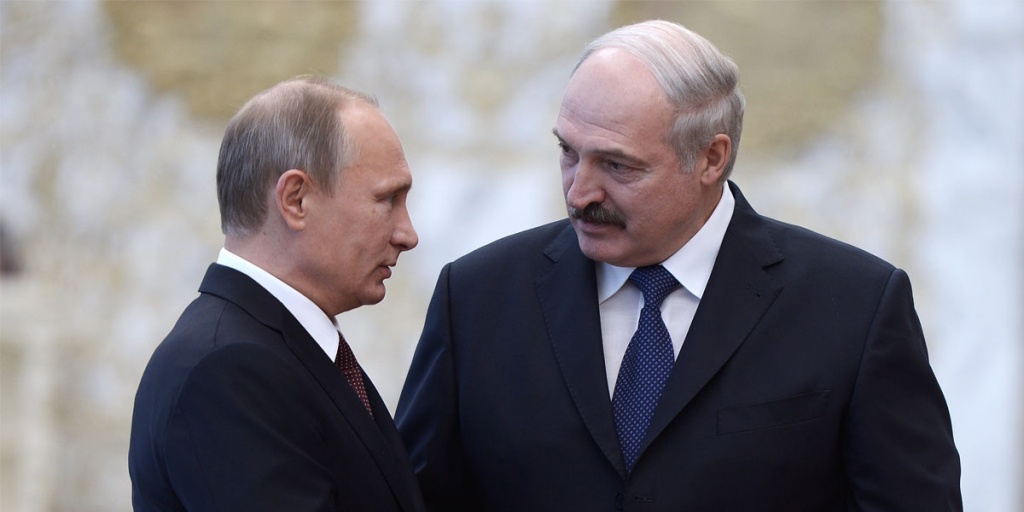BY: Oğuz Fırat

PEJOURNAL – After the Soviet Union collapsed, Belarus began to move away from Russia to improve its deteriorating economy and relations with the West. While during this period, the newly established Russian government tried to control the post-Soviet space by establishing the Commonwealth of Independent States in 1991.
On the other hand, Russia was concerned that interfering with close states such as Belarus, would risk the relations it was trying to establish with the West. But it realized that NATO’s borders were widening eastward and so the West was starting to build sovereignty in the areas that Soviet Union used to control. Thus, Russia started to increase the importance of relations with countries that are close such as Belarus.
Alexander Lukashenko came to power in 1994 and appeared to be an ideal candidate for integration with Russia. In 1995, the Treaty of Friendship, Good-Neighborliness and Cooperation was signed. One year later, in 1996, the Union of Belarus and Russia was established. And in 1999, establishment of the Union State between Russia and Belarus was the peak point of relations. There are virtually no borders or customs between the countries. A fairly liberal procedure for labour migration has been introduced. The rules on social security for citizens of Russia and Belarus, which are common to both countries, apply. The countries are linked by deep integration in the defense sector.
So since the two countries became so close to one another, what later caused the tension? Lukashenko’s goal was to become head of Union State of Russia and Belarus after Yeltsin. But things changed after Putin became president of Russia. Putin, who has been in power continuously for 20 years, changed the constitution, paving the way for him to remain in charge of the country until 2036. Thus, Lukashenko’s dreams of becoming head of the Union State of Russia and Belarus failed. Its moves in the Caucasia, Middle Asia, Baltics and Ukraine were other indicators of Putin-led Russia’s desire to become a dominant power in its peripheral region.
Lukashenko, who was in favor of integration until a short time ago, was saying that Belarus would no longer surrender to Putin. Putin saw that Lukashenko’s will in the country was weakening and he was moving away from Russia. Thus he started looking for oligarchs close to him in the region. On the other hand, Lukashenko, who felt he was degraded, started to get closer to United States and European Union on the opposite front. Russia has stopped supplying Belarus with oil and gas at preferential prices. This led to significant losses for the budget of Belarus.
Minsk for many years has been receiving Russian oil at low prices, and domestically produced a significant amount of oil products, which were sold abroad at European prices. It had really brought a significant profit for the country. US Secretary of State Mike Pompeo visited Minsk on February 1, 2020 and offered to solve Belarus’s oil and gas problem with American resources. In addition, Belarus bought oil from Venezuela which was an economically unprofitable deal, just for propaganda purposes. In July 2020, 33 Russian military contractors were arrested in Minsk.
Lukashenko afterwards accused Russia of trying to cover up an attempt to send 200 fighters from a private Russian military firm known as the Wagner Group into Belarus on a mission to destabilize the country ahead of its August 9 presidential election. On August 5, 2020, Russia’s security chief Dmitry Medvedev warned Belarus to release the contractors. Lukashenko also claimed Russia was lying about its attempts to use the Wagner Group to influence the upcoming election. All these developments have caused tensions between the two countries.
2020 Belarus Elections
For Svetlana Tikhanovskaya, everything was going quite normal until the beginning of this year. It had been 10 years since she quit teaching and translating English. Svetlana Tikhanovskaya, a housewife, had no intention of going into politics. Her husband, Sergei Tikhanovsky, was doing a critical show called Country for Life on his channels on Youtube and Telegram. He was the one who really thought of entering politics, being a candidate. At the end of last year, he was detained for broadcasting live during a demonstration against integration with Russia in Minsk, a 15-day arrest warrant was issued for him, but was released shortly after. This event caused his ratings to increase even more.
On May 6, Tikhanovsky was detained again. The implementation of the 15-day imprisonment decision about him was shown as justification. However, he was released again soon after. On May 7, Tikhanovsky announced to the public via YouTube that he would be a presidential candidate. Tikhanovsky applied for candidacy, but the Central Election Commission rejected the application on the grounds that his signature was not included in his documents. The name of Svetlana, Tikhanovsky’s wife, was heard that day. On May 15, within the last hour of applications for nomination, Svetlana Tihanovskaya’s papers were sent to the election commission.
Meanwhile, the detention of Viktor Babariko with his son and the fact that Valeriy Tsepkalo had to leave the country with the threat of imprisonment made Tikhanovskaya stand out as the only candidate of the opposition party.
Pressures began across the country on representatives of Svetlana Tikhanovskaya’s election office. Tikhanovskaya announced that she was delaying their meeting on the grounds of provocation. However, the pressures did not produce results, and 100 thousand signatures required for her candidacy were collected.
On July 30, Tikhanovskaya, together with the electoral offices of Babariko and Tsepkalo, who supported her, staged the biggest demonstration since 1991. But two days before the election, the last rally was blocked. Two of her deputies were detained the night before the election, and Veronika Tsepkalo, with whom she ran the campaign, had to leave the country.
One of the most severe elections of Belarusian history happened on August 9. The opposition announced that Tikhanovskaya was the winner, while the Central Election Commission announced that Lukashenko won with 80 percent of the vote. With this statement, protests began throughout the country, especially in Minsk. Lukashenko administration used violence on protestors. A day later, it was announced that the opposition candidate was in Lithuania. Svetlana Tikhanovskaya said in her video that she was forced to leave the country because she was threatened with her children.
It was not surprising that the Lukashenko government, supported by Russia for years, won these elections, of course. Likewise, post-election protests were quite expected. Russian leader Putin simply congratulated Lukashenko without any criticism. Because the Kremlin knew that if Lukashenko was defeated, the new president would not be grateful to the Russian government. Although Lukashenko has recently followed an anti-Russian policy, he owed them a lot.
They also knew that after the violence against the people, sanctions would come from the West. Indeed, what Russia expected came true. The European Union has announced that it may impose sanctions on Belarus. America has announced that it has not yet decided, but they are also likely to impose sanctions. Thus, the West, to which Belarus has been close recently, turned its back on it. Russia wanted a weakened Belarusian government and got what it wanted. An isolated, faded Lukashenko was just what Putin would have wanted. Putin will not leave Lukashenko with impunity for acting against Russia. He will use this opportunity to the fullest to re-dominate Belarus.
References
Ivanov, Alex. (2020, July 13). #Russia and #Belarus – Still partners or rivals? Eureporter: https://www.eureporter.co/frontpage/2020/07/13/russia-and-belarus-still-partners-or-rivals/
